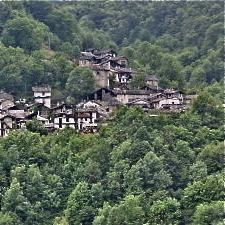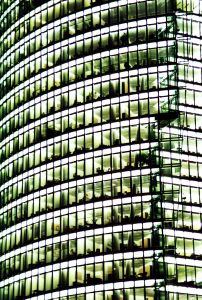 For some forward-thinking hotel properties, water conservation and green cleaning products aren’t enough. Virtuous Traveler Leslie Garrett reports on the growing trend of hotels that are being built and designed to adhere to the high standards of Leadership in Energy and Environmental Design (LEED).
For some forward-thinking hotel properties, water conservation and green cleaning products aren’t enough. Virtuous Traveler Leslie Garrett reports on the growing trend of hotels that are being built and designed to adhere to the high standards of Leadership in Energy and Environmental Design (LEED).
When choosing where to lay our heads, we weary travelers generally want a comfortable bed, clean surroundings and, perhaps, free in-room movies. But virtuous travelers often want more than that. We also want accommodations that suit our principles—those that boast energy-efficiency, water conservation, perhaps even a local organic menu in the restaurant.
These days, a few progressive hotels are taking the concept of “green” one big step further—by building or renovating their establishments to Leadership in Energy and Environmental Design criteria, widely considered the gold standard in environmentally responsible construction. And an increasing number hotels are “taking the LEED” on going green.
LEED-building projects are still relatively rare, says Glenn Hasek, publisher of GreenLodgingNews.com, an online publication for those in the hospitality industry, but “there’s a lot of buzz and momentum.”
 Marc Heisterkamp, Manager, Market Development with the Corporate/Investment Real Estate Sector of the U.S. Green Building Council (USGBC), says that “There are numerous hotels being reviewed by USGBC right now so the number of certifications will increase quickly.”
Marc Heisterkamp, Manager, Market Development with the Corporate/Investment Real Estate Sector of the U.S. Green Building Council (USGBC), says that “There are numerous hotels being reviewed by USGBC right now so the number of certifications will increase quickly.”
On the heels of an announcement by Marriott International that the company was increasing the number of its LEED architects from eight to 50, Hasek confirms that LEED has become the standard that hotel chains are pursuing. “It has become the standard for smart building. It’s more efficient, healthier for occupants … It makes sense that these buildings will be better investments in the long-term.”
Luckily for frugal green-minded travelers, it’s happening across the board. “From budget motels to luxury high-rise hotels, we are seeing a tremendous change occurring in the hospitality market,” says Heisterkamp. “Hotel owners and operators are increasingly using green building practices and seeking LEED certification because they, as the rest of the market has, realize it is fundamentally good business.”
Eric Dominguez, Director of Energy and Environmental Services with Harrah’s Entertainment, concedes that corporate profit is part of the motivation for his company’s commitment to LEED certification for the expansion at Caesar’s Palace in Las Vegas. “Using less energy and using fewer resources creates savings that increase our profitability,” he says, “but our guests do care—and they have made it clear that … they want us to do all we can to help conserve the environment.”
 Hasek notes that a number of surveys reveal that travelers are more likely to choose hotels with environmental practices in place, and, in some cases, are willing to pay more. Many hotels are “driven by competitive pressures,” says Hasek. “They don’t want to be behind or have it perceived as a lack of concern” for the environment.
Hasek notes that a number of surveys reveal that travelers are more likely to choose hotels with environmental practices in place, and, in some cases, are willing to pay more. Many hotels are “driven by competitive pressures,” says Hasek. “They don’t want to be behind or have it perceived as a lack of concern” for the environment.
“Travelers are increasingly environmentally savvy,” agrees Heisterkamp. “Staying at a hotel that has a linen reuse program is no longer sufficient for travelers that understand carbon footprints and are actively trying to minimize their impact.”
The LEED certification, he explains, looks at the full building impacts, including the overall energy efficiency, indoor air quality, and site impacts that aren’t readily apparent to a hotel guest. What makes LEED so highly regarded is that it’s a rigorous, independently awarded certification. “A guest staying at a LEED-certified property knows that the hotel is not just making token green efforts,” says Heisterkamp, “they are hitting high performance benchmarks.”
Still, finding a LEED-certified hotel isn’t easy—not yet anyway. Heisterkamp says there are only seven certified hotel/resort properties in the U.S., with another 160 registered to achieve LEED certification upon building completion or improving operational practices. However, he alludes to “several major hotel brands” which intend to register “significant numbers of new or existing hotels” in the near future. So stay tuned.
“With improved air quality for our guests, significant energy and efficiency savings, and reduced impact on the environmental resources of our communities,” says Harrah’s Eric Dominguez, “it’s a win for everybody.” Including the planet.
For more information on LEED certification, visit the U.S. Green Building Council at www.usgbc.org.
Leslie Garrett is author of The Virtuous Consumer: Your Essential Shopping Guide for a Better, Kinder, Healthier World.Visit her at www.thevirtuoustraveler.com.
Previously By Leslie Garrett::
Carbon Offsets: Travel With a Clean Conscience?
Eco-Oakland: The City You Only Thought You Knew
Chicago: More Green Than Meets the Eye
The Good, The Green and the Downright Crazy Tours
Don’t forget to check out our Responsible Travel section for more green travel ideas.












